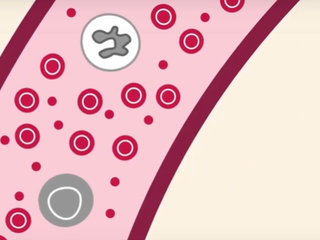Burkitt lymphoma
What is Burkitt lymphoma?
Burkitt lymphoma is a type of non-Hodgkin lymphoma (NHL). You might hear it called high-grade NHL, which means it progresses quickly and needs treatment straight away.
It affects a type of white blood cell called B-lymphocytes. These are part of your lymphatic system, which is part of your immune system. We have more information about your lymphatic and immune systems.
If you have Burkitt lymphoma, your body starts to produce B-lymphocytes too quickly, and they don’t work properly. They can:
- collect and form lumps in your lymph nodes (glands) or organs
- take up space in your bone marrow, so there’s not enough room for healthy blood cells to grow.
This puts you at risk of infection and can cause other symptoms.
Information for young adults
For young adults with leukaemia, lymphoma or any blood cancer type. Your guide to treatment, side effects, coping with emotions, friends and work or study.

Burkitt lymphoma and your genes
Your genes tell your cells what to do and when. With Burkitt lymphoma, a gene called c-myc doesn’t work properly and cells grow too quickly.
These changes are not passed down through families – you can’t inherit Burkitt lymphoma.
Types of Burkitt lymphoma
There are three types of Burkitt lymphoma. They have similar symptoms and treatments, but different causes.
- Sporadic Burkitt lymphoma: this is the most common type in the UK. We don’t always know the cause, but in some people, it is linked the virus which can cause glandular fever (Epstein-Barr virus or EBV).
- Immunodeficiency-associated Burkitt lymphoma: this type is more common in people with HIV. As well as people who have had an organ transplant and are taking medication to weaken the immune system.
- Endemic Burkitt lymphoma: this type is most common in central Africa and tends to affect young children. It may also be linked to the Epstein-Barr Virus.

What is blood cancer?
Find out how blood cancer starts and how it can affect your body
